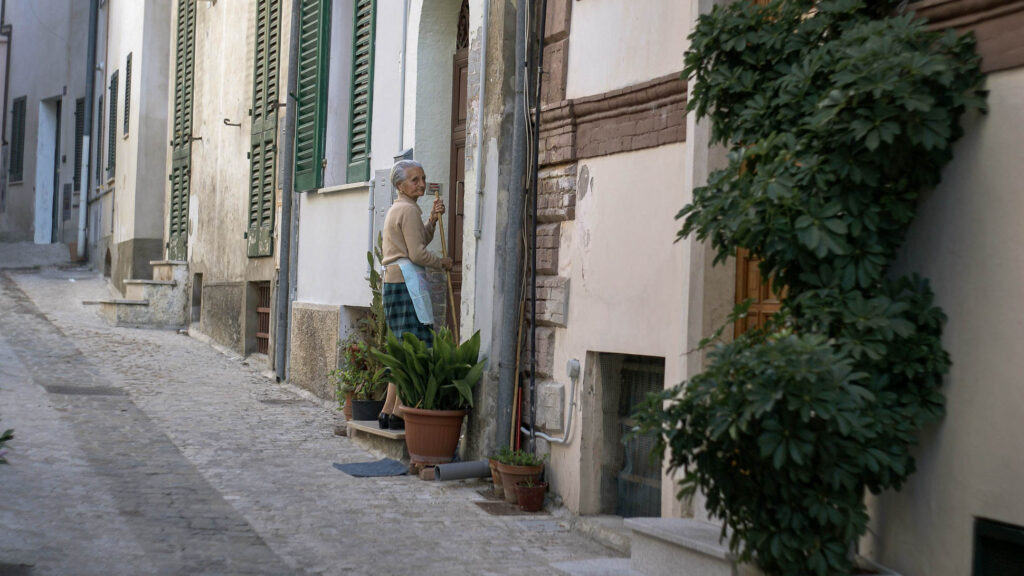
Settling into life in Italy also means learning how to live alongside your neighbours and understanding their community etiquette. Italians take neighbourhood life seriously, and depending on where you live, it can be the source of strong friendships or, at times, conflicts. If you approach things with respect and a little patience, you’ll usually be embraced and even seen as a valuable addition to the community. But it helps to know how relationships work in Italy and what to expect.
👉 For more on Italian culture and public life, see our article: Italian Etiquette Guide.
Different Types of Neighbors
In Italy, you’ll encounter every type of neighbor:
- Open and welcoming: Many Italians are curious about foreigners and will go out of their way to make you feel at home. Expect offers of coffee, homemade wine, or vegetables from their garden.
- Guarded or suspicious: Some neighbors, especially in small historic towns, may initially feel threatened by newcomers. It’s not personalit’s about change in their familiar world. Over time, if you show consistency and respect, they usually warm up.
- Interfering types: Italy also has a minority culture of “controlling” neighbors who keep a close eye on what happens around them. They’ll comment on your parking, your renovations, or the timing of your recycling. It can feel invasive, but often it’s part of community life.
Historic Centers
If you live in the centro storico, neighbors are literally meters away, sometimes separated by a single wall. Here, etiquette is crucial. Keep noise to a minimum during riposo (the afternoon rest period, usually 1–4 p.m.) and late at night. Participating in local events can be a way to getting to know locals.
Countryside and Small Villages
In rural Le Marche or other regions, neighbors may live further apart but expect more interaction. It’s common to share tools, exchange food, or check on each other’s properties.
Cities and ‘Condomini’:
In larger cities, anonymity is more common, but in apartment buildings (condomini), you will have shared responsibilities: stairwell cleaning, building maintenance, condominium meetings. These can become battlegrounds if handled poorly.
North vs South Differences
Italy’s regional diversity also affects how people treat their neighbors.
- Northern Italy: Relationships can be polite but more reserved. Don’t expect immediate invitations into someone’s home, but over time trust builds.
- Southern Italy: Hospitality is stronger and warmer, but so are expectations. People may be very open, but they’ll also expect you to reciprocate with the same generosity.
Le Marche sits somewhat in between: generally welcoming, but with the cautious approach typical of central Italians.
Rules of Etiquette
- Greetings are essential. A simple “buongiorno” or “buonasera” in the stairwell or street goes a long way. Ignoring people is seen as rude.
- Respect quiet hours. This is one of the main sources of disputes in apartment blocks.
- Share when appropriate. If you receive produce, wine, or cakes, it’s polite to return the gesture at some point.
- Participate in local traditions. Attending town festivals, church events, or community workdays helps integrate you faster.
- Avoid gossip at first. Small communities thrive on gossip, but don’t get pulled into disputes until you truly understand the dynamics.
Potential Conflicts
Let’s be real: like anywhere else in the world, it’s not always all positive. Property boundaries, noise, pets and shared spaces can become sources of fights. It’s rare, but some feuds can even last years. If you find yourself in a conflict, stay calm and seek mediation through other neighbours, the Comune or even a lawyer if necessary. Escalating arguments in public is rarely productive.
Building Lasting Relationships
Ultimately, most Italians appreciate foreigners who bring new energy, restore old homes, and invest in their communities. If you’re polite, consistent, and generous, you’ll usually be rewarded with friendships that last a lifetime. Many expats say their closest Italian relationships are with neighbors who at first seemed distant or even hostile.
Related Readings:
👉 Foreign Buyer Practicalities: Residency, Visas, Inheritance.
👉 SIM Cards and Internet for Foreign Residents in Italy.
✅ Key Takeaway:
Neighbours in Italy can shape your entire experience of living there. Approach relationships with respect, patience, and openness, and you’ll likely be embraced as part of the community.
